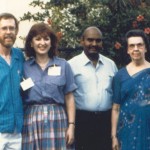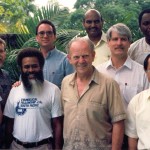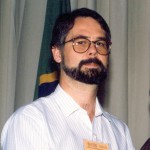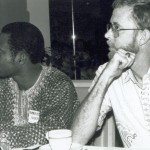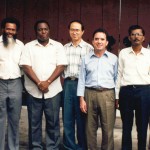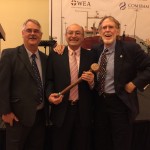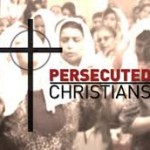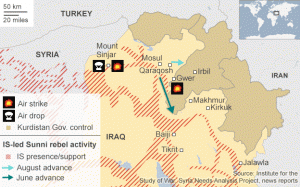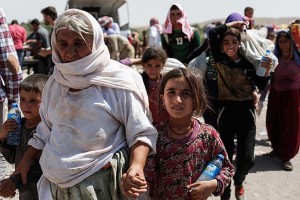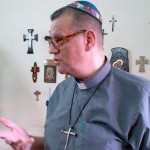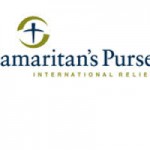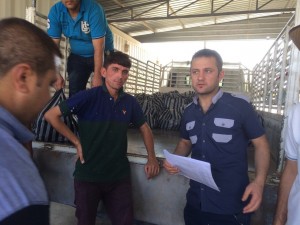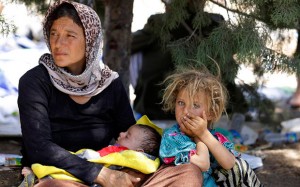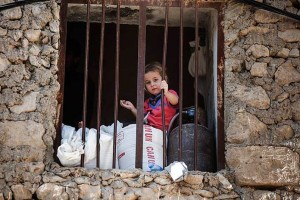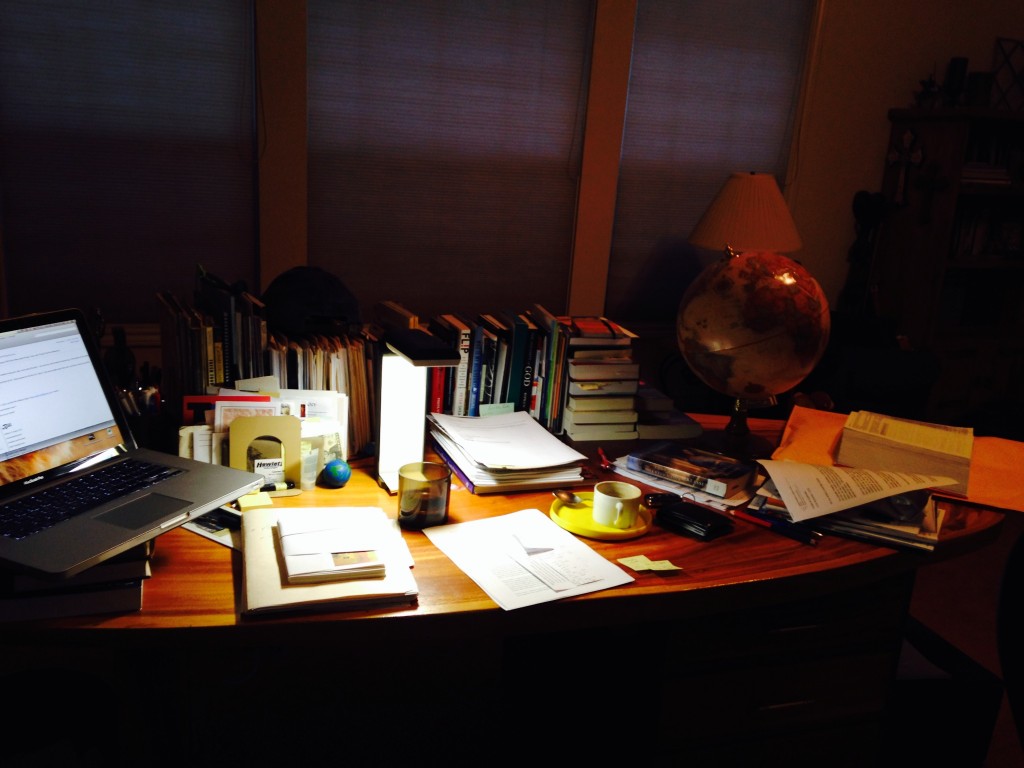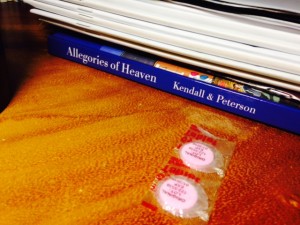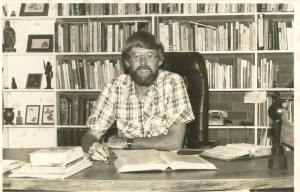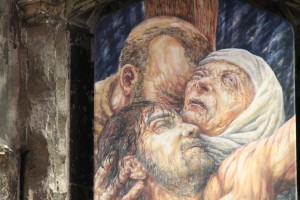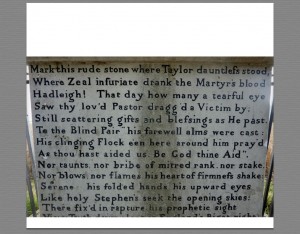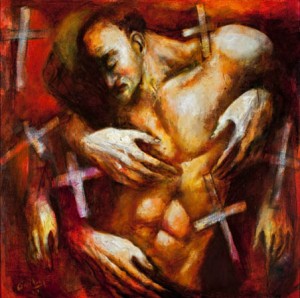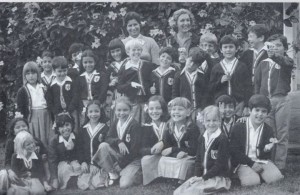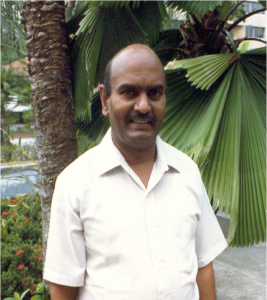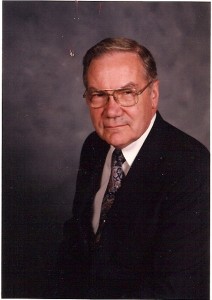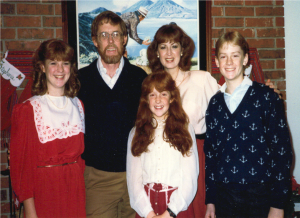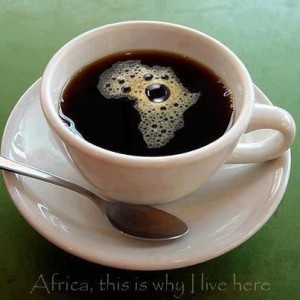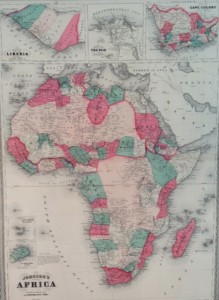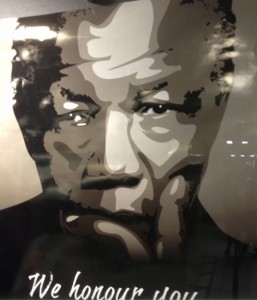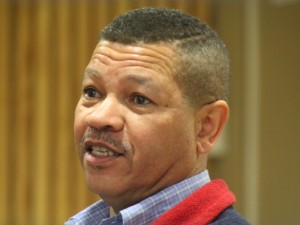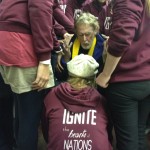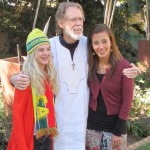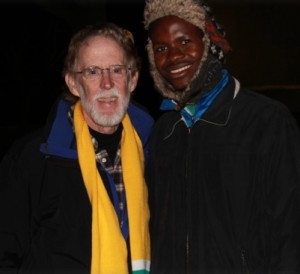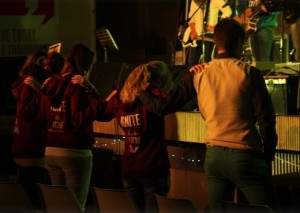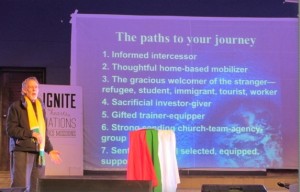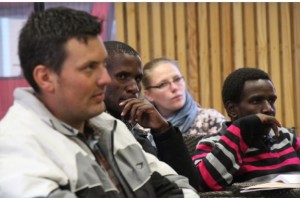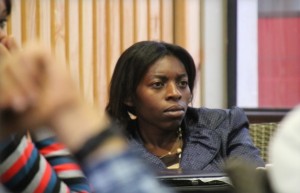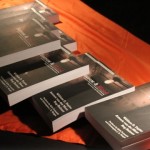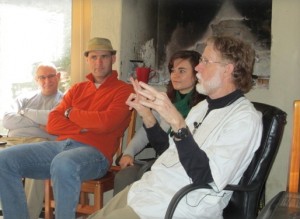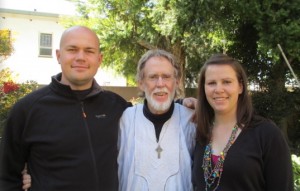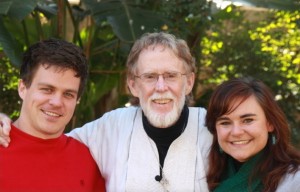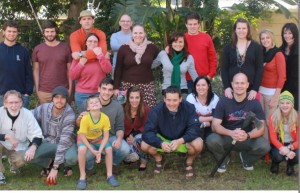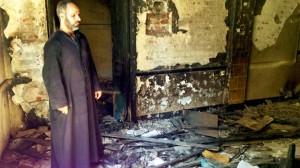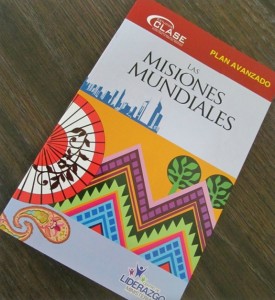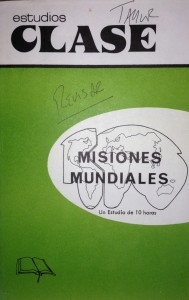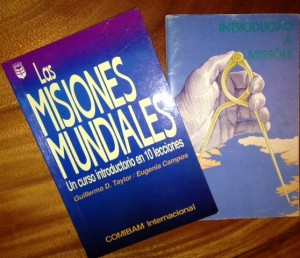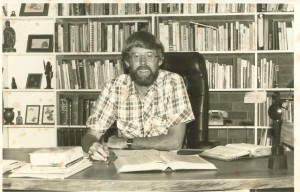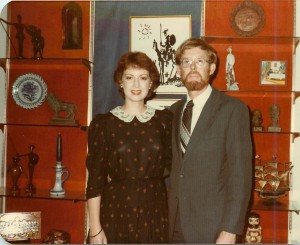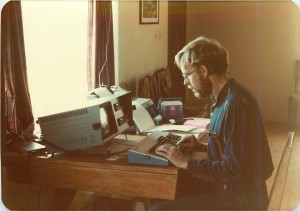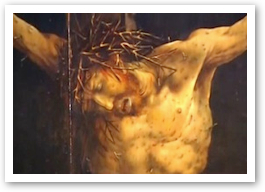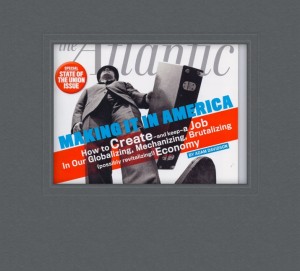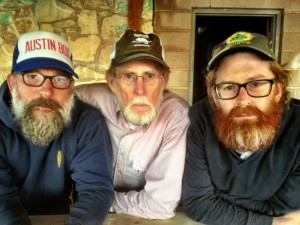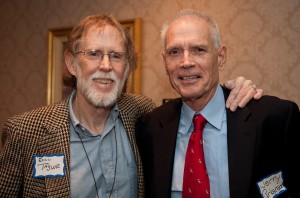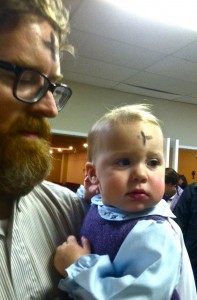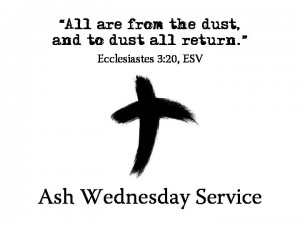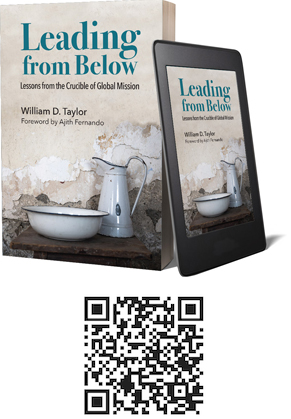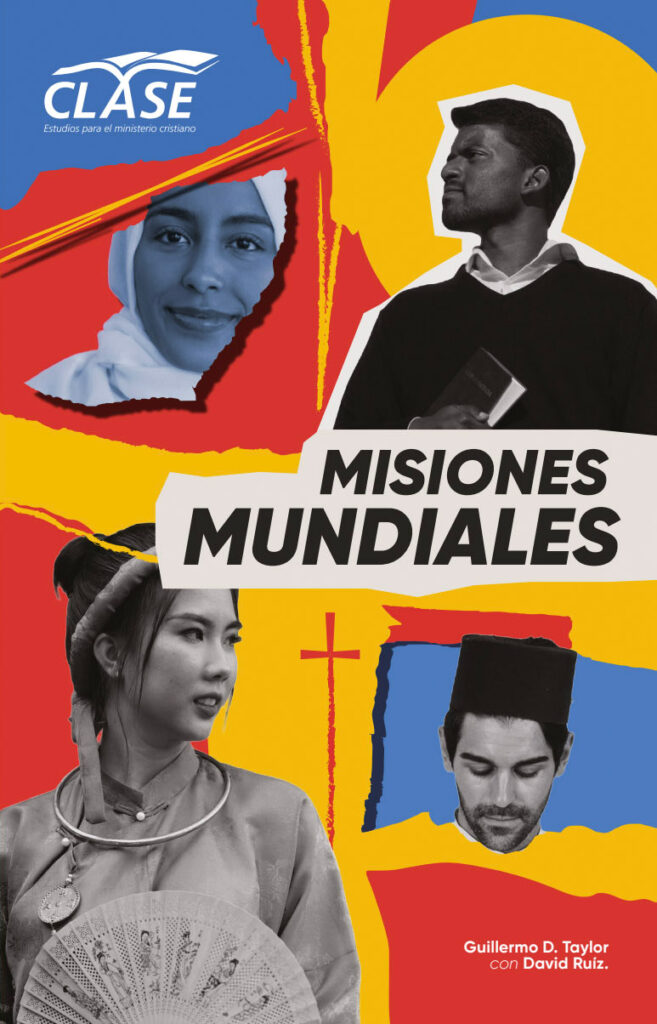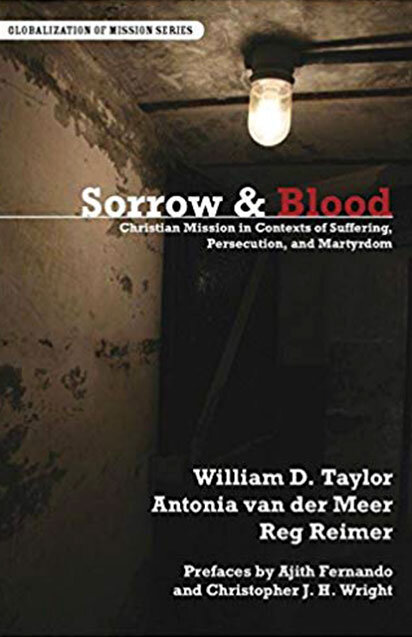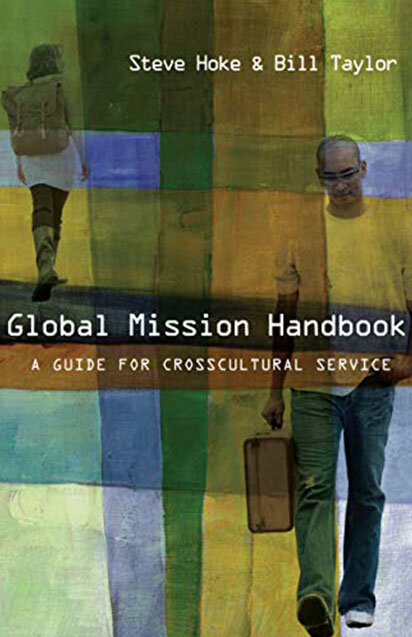Good friends, “out there”,
Major changes in my life and ministry. The prime reasons is the result of the conclusion last December 31, of 30 years on the staff team of the Mission Commission, World Evangelical Alliance. I started there when I was 46, and ended when I was 76. That’s three decades. That a long time!
As I gaze into the future I see the Hand of God, I see release, I see a new chapter, I see myself on the latter laps of the race. I know I will not climb the mountain range set before me; rather, I will rest at the foothills for there and then I will have served my generation and “permanently changed my address”.
And one clear implication of this change calls for me to reactivate the blog as my primary voice-platform. Facebook postings will primarily refer people to the blog. It is here that I will float some of my reflections, and especially the first pieces of my memoirs–reflections of a global pilgrim. I am eager to do this.
But I was just wondering if anyone is still out there, and if so, pop me a quick note. I am not expecting much action there, but it’s a start.
Soon, The Global Pilgrim, aka El Vidente
ps. The selection of photos goes back to the beginning, circa 1986 and years after. Only one for the ending, but a good one, the three MC executive directors over these 30 years.
August 20, 2014
Good friends,
A number of you have asked me what organizations I recommend for prayer and financial investment in relation to the current massive and tragic crisis in Iraq.
Such as this one:
Can you please direct and help me formulate a response for our church to the events going on in Iraq.
1.We are praying but how can we pray intelligently?
2.How or where can we additionally help? Is there a place(s) we can give to support any relief effort? I’m not easily finding places to do that.
3.How else would you recommend responding?
Below you will find a list of organizations that I trust in terms of careful stewardship of resources. I thank Mindy Belz of World Magazine for her help after I wrote her for her ideas. I have listened to some ten different voices and the list I send you gives healthy diversity. I don’t know all of the organizations equally, but I trust them.
How to pray? Just think about it! Make it relevant, real, truthful, applicable, and encourage your congregation to invest in any or more of these.
Yes, I know some of them are primarily from North America. Forgive, but that’s my current world. If you know of others you trust, let me know.
Blessings as you discern what God wants you-us all to do here.
Bill
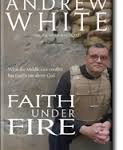
Organizations that I affirm who minister in the vortex of Iraq and merit our investment. It’s a nasty, massive and very complicated Iraq crisis. Bill Taylor, WEA Mission Commission; TaylorGlobalConsultThe first four are the closest to “the ground” and have long-term relationships and credibility. Three of them are church-based ** Rev. Andrew White’s mission in Baghdad; http://frrme.org While Rev. White is Anglican, “The Vicar of Baghdad”, his relationships are very broad and solid. 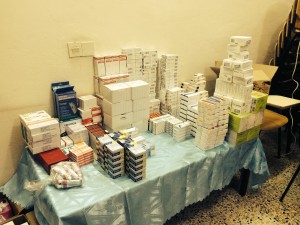 ** From the Evangelical Anglican Mission Networks ** Many Iraqi Christians have found sanctuary in AG churches in northern Iraq. Select “46” for “class” and type “Christian Refugee Assistance” in the comments section. https://giving.ag.org/Give/Details/1a1a0e13-612e-4d3d-94b2-80b231a7fac4. ** Partners International. PI has my highest respect for their commitment to believers in Iraq, and in particular the Kurds. I have personal reference from friend-colleague who works with PI and has been there countless times. ** www.iraqrescue.org. ** From the Evangelical Anglican Mission Networks ** Many Iraqi Christians have found sanctuary in AG churches in northern Iraq. Select “46” for “class” and type “Christian Refugee Assistance” in the comments section. https://giving.ag.org/Give/Details/1a1a0e13-612e-4d3d-94b2-80b231a7fac4. ** Partners International. PI has my highest respect for their commitment to believers in Iraq, and in particular the Kurds. I have personal reference from friend-colleague who works with PI and has been there countless times. ** www.iraqrescue.org.
** The Foundation for Relief and Reconciliation in the Middle East ** Open Doors ** Servant Group International ** Global Aid Network, the relief arm of Cru ——————– For a powerful interview: https://www.youtube.com/watch?v=ryyb9LHkYXY ——————- This is the recent report I received last week from Partners International August 12, 2014 Friends, Dohuk has welcomed 700,000 refugees, Hawler 500,000 and Suly 200,000. Most refugees have been sheltered from the scalding heat in school buildings and construction sights. Relatives are being welcomed as much as possible and as much as their floors can spread mattresses. Help has been pouring from all sides!! This morning the Yazidi families received a week supply of food. 5000$ worth of medication has been purchased and sorted. I have been working at the Assyrian Union locations for couple of days (450 families are occupying two school buildings and a preschool floor). 40 prescription lists have been refilled, ORS in sippy cups were a big attraction (dehydration prevention was part of Farrah’s job), dippers, soap, detergent, wheel chairs, and disinfectants given out as mobs of ladies pushed and shoved. Another group of doctors handed out medication at the Syriac Catholic Church in Enkawa. The cities are now calm, relieved that borders are contained and trying to resume normal daily life. Thank you for your support. Blessings Kurdish Christian Leader ——————— From the Evangelical Anglican Mission Networks Our brothers and sisters in Christ in Iraq and Syria are being slaughtered by the Islamic State (ISIS). Gruesome videos produced by ISIS are appearing on the internet showing beheadings and public displays of dismembered Christians. In many places Christians have been crucified by the ISIS. Some videos show Christians being forced on their knees to renounce their faith and convert to Islam—only to be summarily beheaded following their “conversion.” ——————— From the MANHATTAN DECLARATION team:
|
That is why I have composed a Plea to our government and the international community on behalf of victims of ISIS barbarity. I ask you please to read my plea and consider adding your name to mine on the website we’ve established for this purpose: www.iraqrescue.org. We need to let our elected representatives know that we care about Christians and others who are victims of persecution abroad and we expect our own nation to be in the forefront in defending them when we can.
We are not the world’s policeman, but as disciples of Jesus we believe in doing unto others as we would have them do unto us. Without jeopardizing American lives, our nation can help the suffering Christians of Iraq at a time when they are facing possible annihilation. What we can do for our persecuted brothers and sisters, we must do.
Yours gratefully,
Robert P. George,
McCormick Professor of Jurisprudence
Director of the James Madison Program in American Ideals and Institutions
Princeton University
———
Finally, from Bill again. If you want some disturbing images, here you go. 
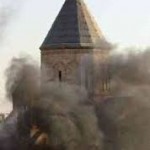
2. Christians in Iraq https://www.google.com/search? q=christians+in+iraq&client=safari&rls=en&tbm=isch&tbo=u&source=univ&sa=X&ei=ivHvU4INg4DKBKbdgsAH&ved=0CFEQsAQ&biw=1584&bih=890
3. We had never even heard of the Yazidi people. Now?
Reflections on a desk, mine own, verily, a stream of consciousness……
November 14, 2013
My beloved friend my work desk, she is loaded with significant stuff; she sits 180 degrees opposite my computer desk, exactly 29.7/8ths inches away from each other—they sometime talk to each other but they are both humble and made of wood, the computer one of Arkansas oak, sturdy, functional, with no photos this time to reveal its practicality—but it does not talk to me anyway. My other one, she does.
I have a marvelous chair that swivels so smoothly between the two. This evening I was gazing at her with gratitude, with its graceful curves, a diagonal slice (to give strength to the cut) of the original log which I saw in a lumber yard in Guatemala City the year of our Lord 1970, when I was 29 years old and my wife five years less, that was owned by some Italians and asked them if I could buy a slab and they said yes and charged me $8.00 because there was a crack in the heart of the slab and I got my Guatemalan carpenter to fill it with the sawdust of the wood.
So with a warm heart, I took a photo of it, my hard-working wood friend and fellow-servant-colleague. I estimate that, if I count the yearly rings rightly, it was perhaps some 33 years old when cut from the forests. This noble slab of red ash with the bottom supporting structure and four drawers (that slide so gracefully without metal or whatever makes drawers move today—surely not Ikea) of Guatemalan mahogany, it has stood the test of time, traveled far and wide, following its owner in humble submission.
As I contemplate it, I see many things resting on it this evening: my Ott lamp, supposedly saving my eyes; my great world globe, a gift of my family last Christmas; some of Phaedra’s unique Celtic cross cards, soon to be used with the gift of some of her encaustics; my newish Mac, a replacement last month of the new lemon I purchased Mac (or do you call it an Apple?) a year ago–stacked on some books, rather precariously; a glass with the remnants of some soda water mixed with weak sangria; my now-empty espresso cup and saucer, the afternoon treat of some wonderful Costa Rican mild coffee; a little blue rubber globe to exercise my trigger finger on the right hand—but I think this actually gravitates it; a couple of sticky notes telling me what the priorities of today are, and now they graciously slide to tomorrow’s list; a file folder under the cards, holding the Power Point and notes from the webinar I just gave today on “Sorrow and Blood” to the Missio Nexus great commission network; a stack of “financial” items I must deal with some day; a shelf of files, books and other stuff that I am supposedly reading; a stack next to it with the same intention; and barely seen, three of the Ender’s Game series; my wallet and VW car keys, two priority possessions; a couple of stacks on the right, one concealing some South African coffee, the other with a ESV Study Bible open to the take-no-prisoners little epistle-book of Jude, and a mailer I must put in the post tomorrow with my 40 year old bullwhip, asking my new friend John Stem who is making the new one to see if he can repair this even if it’s too short but I can use it to teach the skills to my grandsons—these traditions must be passed through the generations, right?; and under it all, beautiful, natural red-tinted wood that I love to touch, to slowly run my hand over its delicate veins and textures, the top smooth and the underside rough, like it came from the lumber yard that day so many years ago in the middle of the Guatemalan rainy season.
Ah, if the wood could speak, what would it say, having recorded the conversations, and listened into the prayers, and the silent thoughts spoken into the cosmic arenas of the Triune God in a number of countries—Guatemala, her home country; the Northern Tundra’s of the USA; the hidden midlands of Arkansas; the Republic of Texas—probably her burial place or we put it in the will to pass to another generation? Who would want her? Ah, they will compete for her, I know!!
Speak, desk, for your owner is ready to listen. I am quiet. It is night. Winter has finally arrived in central Texas. Are you an it, or a her? Hmmmm, these are metaphysical questions of ontology and epistemology, and perhaps a solid dash of axiology—ethics and art.
It’s late. These musings must come to an end. And they do!
November 8, 2013
Good global friends,
Here are some good news pieces on the book. We are amazed that it is the 3rd best seller for William Carey Library (after the two Perspectives texts). For more information, go to http://www.sorrowandblood.com.
Christian Post had asked me for an interview early in 2013, and I was finally able to complete it about ten days ago.
The last issue of Mission Frontiers has a four-page interview also which I will post separately.
On November 14 I will do a webinar with Missio Nexus, the North American Great Commission network on our book. Our fellow writer, Marv Newell is the host of those striking conversations and he expects “80-100 computers” on line. We shall see, but thank you for your prayer.
Continue to pray for the distribution AND reading of the book. We are in process of the translation-adaptation into Spanish, Portuguese and Korean.
Thank you again for your vital contribution to this unique resource anthology. Please feel free to circulate this email and the news items.
Soon,
Bill
Part two: Surprised by the bargain with God and with more family life to narrate the real and parallel story of my most intimate community.
Ha! Was I ever surprised after my bargaining with the Almighty!
Before we had even returned to Guatemala 8 months after that fateful November 8, 1982, SETECA had agreed to establish a new Missiological Center. Well, at least five hurdles to go. The first (yes, the very first) weekend back at our church, El Camino, Dr. Abel Morales, lead elder of our church (who later would leave his medical practice to study world missions at DTS and return to teach at SETECA), welcomed all of us with a massive hug and then said to me, “OK, Guillermo, in your absence the Spirit has been working to give us a heart for missions. Will you help us on the local church level?”
Ahhhhhhhhhhhh……………! I started to get a bit nervous, but obviously I said “But of course!” And I joined a highly motivated small community of El Camino leaders who represented the demographics of the congregation—with much more faith than I.
Within weeks the seminary curriculum was changed to include the missions course, and God had already raised up a young mission enthusiast on the faculty, a former student of mine, Jorge Morales (who years later would leave Latin America with his family to serve as missionaries in Spain).
Then within months the lay leadership training program of SETECA, called CLASE (Curso Latinoamericano Sistemático de Extensión), asked me to craft a short, ten-lesson course on world missions for the local church. Called “Misiones Mundiales”, my co-author was Dr. Eugenio Campos (who later got his DMin from TEDS in world missions). I adapted some of my TEDS course materials into Spanish, and Eugenio did the harder historical chapters. The work-book was released in 1985.
Uhhhhhhhh. Now four down; two to go. This was not what I had bargained for!
In 1984 SETECA held a world mission conference (in part responding to an undeniably clear work of the Spirit of God amongst the student body that had fully awakened to its potential and future role in the historical and global mission of God. To be honest, the faculty and administration (and I in both) were late to the Holy Spirit on this one. In all fairness, we were not the only ones late, for the global mission movement in Africa, Asia, and Latin America had few European or North American mission advocates.
For strange reasons, the international mission force was marked by a high passion for evangelism within cultures or national geographies, but seldom traveled further out—geographically, culturally, linguistically. The speakers God used in that seminal conference included Drs. Bong Rin Ro of Korea, Tokunboh Adeyemo of Nigeria, David Hesselgrave of TEDS, Dr. Emilio Antonio Núñez and Norbert Schmidt of Germany. Ro and Adeyemo also spoke at our local church missions conference. And the response was radical in both seminary and church. God the Spirit had exploded our world before us. It was an astonishing time to be alive in global mission.
I well remember at some point perhaps around 1980 that a young woman student had came to my office for counsel, sharing her heart’s dreams. She was a dear heart, but not the strongest academic student at SETECA (actually she met her entrance pre-requisites as a graduate of a household appliance repair vocational school in El Salvador. So she said, “Don Guillermo, the Lord has called me to be a cross-cultural missionary and I want your guidance.” My guidance? “Woman!”, I wanted to say, “there is no mission agency for you and I just don’t think this is the Spirit speaking to you.” THAT’S what I said to myself, whereas to her I stated, “Dear sister, we must talk and pray about this. Perhaps it is a bit early to think this way?” To which she responded, “When the Spirit calls, I must obey.”
Many years later my Brazilian-based friend and colleague, Barbara Burns, would share with me the story of Najua, a student of hers in the Antioch missionary training center—this would have been in the early 1980’s also. Najua had a very “colorful” background as a street kid and out of that context had been radically saved, only to become a radical missionary to her former “people group”. So in the class one day, Najua stated, “The Lord has called me to be a missionary in Albania.” Barbara said, naturally, “But Najua, that is impossible. Albania is the most violently Marxist anti-God country in the world.” To which Najua responded, “But the Spirit has called me to Albania, and to Albania I shall go.”
It’s a long story that has been written down elsewhere, but later Najua served with a team of Brazilian missionaries “next door” to Albania for years, traveling clandestinely into the country, learning the language, running the gauntlet of secret police, and witnessing serious miracles of God. When the Iron Curtain collapsed, and in Albania it crashed down, she was one of the few Brazilian missionaries who already spoke Albanian. And they moved to Albania.
Update: I recently asked Barbara what Najua was up to now, and she write, “Najua is starting a Bible college in Albania. She never quits.”
OK, back to Guatemala. My experience with this lovely student left me dumbfounded. And that was before we spent that trial year at TEDS.
Update on that student: she served for some 15 years in one of the worst war-torn areas of Guatemala amongst the Maya people, contextualized to the max, and became a sainted missionary woman. The last time I saw her she was now headed to North Africa. Oh, the lessons God has taught me!
At some point, perhaps in late 1984 or early 1985, Wade Coggins and Theodore Williams, now President of World Evangelical Fellowship (as WEA was then called) made a second visit to Guatemala. Again, Theo’s impact and challenges at and beyond SETECA were profound. He directly spoke to the Guatemalan leadership about starting their own, national mission agency, and about dreaming into the future for a Guatemala-based mission training program-center. And so it came to pass.
My goose was cooked! In other words, I was stunned. God had met his side of my “long-term bargain” within the first year of our supposedly-long return to Guatemala. I had no other option but to realize that our life in Guatemala was soon coming to an end, but I had no idea it would come so soon. For it would be the summer of 1985 that we would say our permanent, multiple, tear-saturated farewells to Guatemala, to our church, to SETECA, to our friends, and significantly, to the new house we had constructed. The children would say farewell to their teachers at the marvelous Austrian-Guatemalan Institute and our church, Centro Bíblico El Camino. By that fall we would be living in the frozen tundras of the USA—again teaching at TEDS, again supposedly long-term.
August 31, 2013
Good friends and global partners,
How can I bottle the majestic glory of Africa’s Victoria Falls in a cup? No, I was not able to visit that magnificent world wonder but it remains a dream of mine. However that analogy illustrates the challenge as I report on the two-week trip (July 24-August 9) to South Africa.
The marvelous cataract rush of experience, emotions, thinking, preparation, speaking (16 times), face-to-face engagement, and personal mentoring was beyond expectation.
South Africa has powerfully impacted me each time I (alone or the two times with Yvonne) have visited that unique nation. Always at the top of my “preferred nations to visit”, this time I discerned again the favor of the living God upon South Africa. Its unique blend of the races, languages and peoples; its incredibly diverse geographies and ecospheres; its global buffet of food (including some of the hottest spices and unusual dishes in the world!); its tangible evidence of the Gospel of God and its power to transform; the irresistible work of the Spirit calling devoted South African Christians to radical mission—within its national peoples, needs, opportunities, and from there spiraling out to the continent of Africa and then to the world.
I was encouraged to hear of the “return of the exiles”, a turn-around of the exodus of citizens who post 1994 feared they would not have an opportunity-laden future, and hence left—for England, Canada, the USA, Australia and New Zealand, among many places. They are returning, in spite of the challenges, and the difficulty of the racial quota system for university studies and careers. A growing number of thoughtful Black South Africans is concluding that the reverse discrimination—affirmative action—does help them and they want to win on their own merits the right to study and work.
My assignments gave me a packed schedule, thanks to my dear friend Adriaan Adams (of Afrikaans background, married to the very gifted Lydia—daughter of my trusted senior colleagues, Willie and Lydia Crew). I had spent months in preparation, knowing that I would be stretched. Thankfully, upon arrival Adriaan told me that the four church speaking tasks had cancelled—to his chagrin and my gratitude! I was grateful to stay in a quiet guest home where I could retire, refresh, try to sleep and breakfast.
So here were the assignments:
1. Meeting the Friday evening before the UP mission with their leadership team, sharing some of my journey, the ideas I had for the week as speaker, and then praying. What a remarkable group of students. I am honored to know them.
2. Serving as prime speaker five nights at the University of Pretoria annual missions fest. The U.P has had a historically powerful role in the nation, and some 54 Christian student groups operate on campus—half of them church discipleship ministries. The World Mission Team is a student-led movement (great memories of my early-life-work with Inter-Varsity, another student-led movement).
It was mid-winter, and cold; Tuesday evening I had five layers on my upper body, and students sat with blankets around them to keep warm. The worship team rocked, the dance and music teams were creative, the audience excited, and I knew deep in my bones that God was going to show up. And He did! I developed a five-part series with these following components to each talk:
- A mission story, most from Africa, illustrating the arrival of the Gospel to Africa, or the price paid to follow this radical new Jesus. The story then pointed to some key lessons.
- An applied Biblical exposition—from Genesis 1-12 through Revelation, progressively revealing the eternal heart and passion of God for his creation, for the nations, for his called-out people and for his Gospel.
- A series of five thoughtful questions that we must ask all faith and non-faith systems. Depending on their answer, we can determine which one points to the Eternal Truth of the Living God: the mystery of creation, the human personality, the brokenness (that “sickness unto death) of the human being, beauty and truth, and justice-injustice.
- A clear set of take-homes for each night, building as the week went on.
The last night. Just before dinner with the leadership team, they prayed for me. It was sweet, tender and powerful. I then anointed each with oil (I travel with oil for these cases as they emerge), and asked them to set sentinels on the perimeter of the ampitheatre during the entire 2 hours of the final service. I was deeply stirred as I spoke, witnessing these young sentinel believers, interceding for their fellow students called to radical discipleship and decision. I know they stood alongside the invisible perimeter of God’s angels, defending against the attacks of the enemy and calling on God to reveal himself.
3. Engaging with a small team of younger and emerging South African mission leaders as they considered the challenges before them as a generation, engaging and providing mission leadership. I spoke twice, but it was more just being present, knowing God was doing new things. Adriaan led the sessions, convened by WENSA (the South African mission network) and MANI (the African mission network).
4. Speaking to church and mission leaders on “Sorrow and Blood: Christian Mission in Contexts of Suffering, Persecution and Martyrdom”. I had taken about 40 copies of the book and all were soon sold.
5. Speaking in three extended sessions with younger and emerging mission leaders in South Africa. Some of them were members of Adriaan’s team at the FTLT, others were students, others from Operation Mobilization SA, others in various vocations, all thoughtful and committed. My assignment, thanks to Adriaan, was “If you had known when you were 25 what you know now, what would you have done differently?”. Hmmmmmmmm. That’s an interesting spin on my personal history, and it required that I return and review life to see what I would have done. There were some lessons that could only be learned through experience, simply through maturing, through learning from mistakes.
But with the perspective of hindsight, I could tell them things to avoid to look out for, and to incorporate early on. Some of these lessons were personal or related to marriage; but others were more theological and ecclesiological.
6. Investing one-on-one, or one-on-two, or one-on-five, those more intimate interactions of life-on-life, of shaping and mentoring.
This probably was my prime purpose in going to SA, and I was thankful upon departure that God had met me, had met us. It is so clear to me that the hand of God is strongly on some of my younger friends, and I am eager to walk parallel and alongside them as they-we discover and embrace the future.
Whilst in SA I also discovered that God was opening a new dimension to TGC, and that was the creation of a category “TGC Associates”, key individuals invited into a more direct relationship with me under the purposes of TGC—to mentor, to shape, to build, to reproduce. I am certain that God will provide the further wisdom and financial resources to make this happen. Already one case study has emerged and I want to walk into this unique opportunity.
The final full two days were spent with Lydia and Willie Crew, my dear, long-term SA friends. Nobody has been as generous to us as they have, in the sharing of personal resources and time, in the opening of doors for SA ministry, in the privilege of filming in 2000 a series of lectures that have become part of the “Live School” curriculum—now in English, Russian, Arabic, Farsi, Turkish, Swahili & Korean. The near future includes French, Portuguese & Spanish. Example: some years ago a former colleague from Guatemala ministry years wrote me from the Ukraine, telling me that as he entered this small church, he found me teaching in Russian!!!!! This Live School is a grass-roots but sophisticated program of mission training focused on the less-reached peoples of the world.
I returned exhausted but profoundly satisfied that I was doing what God wanted me to do, that I was in his place of blessing, that I received much more than I gave.
With deep appreciation to each of you, and especially to my South African sisters and brothers.
Bill
August 16, 2013
Good friends and global colleagues,
Today I was geared up to continue the reflections on “Misiones Mundiales”, with the parallel growth of the mission movement in Latin America and in my own understanding.
But clearly, this is the word to share today, from perhaps the most respectful Christian media ministry serving the Middle East, SAT-7.
That Western media and so many governments have simply swallowed up the Muslim Brotherhood narrative is profoundly disturbing, and makes one wonder where historic common sense has disappeared to. My own government has no idea what to say, much less do, and constantly spins the news for the sake of self-preservation…..and other agendas.
Have we heard the story of the young Jessica Boulous, 10, was killed last Tuesday in Cairo after attending a class at the Ahmed Esmat Street Evangelical Church?
And in the last two days the number of churches, Christian centers, residences and believers attacked is unprecedented.
All we can ask is that we pray thoughtfully and with godly aggressiveness!!
Part one: birthed anew, Spanish, church-based study course “Misiones Mundiales”, and in addition a few notes on our family pilgrimage July 15, 2013
Last month I received notice, and photos, of the release of the workbook on missions that I had first co-written in 1984. My then-co-author was my friend and colleague, Dr. Eugenio Campos, Nicaraguan born missions teacher at Seminario Teológico Centroamericano in Guatemala.
This small missions handbook was produced in the last months of our 17 years in Guatemala, and was a kind of a departing “gift” from me to the Spanish-speaking world.
However, there is a very significant back-story that returns to two key dates, one remembered only by the year, 1981, and the other one a very specific date, November 8, 1982 (strange how I can remember some dates, but not all of them are as momentous as this one). My long-term mentor, friend and colleague, Dr. Emilio Antonio Núñez, had begun to circulate in broader international arenas, and through the World Evangelical Fellowship (of which I knew nothing at that time and never in my wildest dreams would I have considered that I would have spent so many years with this global network) had met mission leaders from Africa and Asia. He invited two of them to visit us in Guatemala and challenge us beyond our borders: Dr. Theodore Williams of India came with Dr. Wade Coggins, at that time head of the USA EFMA mission network. Later I discovered that both were also leaders of the WEA Mission Commission. Both Wade and Theodore would become dear friends and mentors to me in my early years of service in the WEA Mission Commission starting in July, 1986. (Both of them have passed into the Other and True World now). In 1981 Wade (a former missionary in South America with the Christian and Missionary Alliance) came primarily as Theodore’s translator but also as an “interpreter” of what God was doing in the world.
From Theo (as we later called him with affection) we in the SETECA community first heard of what was then called “Third World Missions”. His compelling stories came from the emerging mission vision and force out of India and the broader contexts of Asia and Africa. Theo’s message was simple: the fullness of the global Great Commission is for all of the church in all times and around the entire world of peoples, cities and nations. I honestly don’t think I had never heard of that before, and at the time it did not resonate in my heart and mind.
But it would explode in the Fall of 1982.
The November ’82 date marks the point when I was teaching an “Introduction to World Missions” class at Trinity Evangelical Divinity School in Deerfield, IL. The 1982-1983 year was really a trial to see whether we would sense the Lord’s direction to teach full-time and long-term at TEDS. But it was exactly on that date, one day after my birthday (perhaps the clue as to how I could remember the date) that the class topic was “Third-World Missions”(now called “Global South mission”). I so remember quoting the statistics that had begun documenting the growth of the mission movement from Asia, Latin America and Africa, from the mid 70’s to the mid 80’s.
As I exulted in class over what God had been doing around the world, the crushing blow hit me and I am convinced the Holy Spirit spoke to me: “But Bill, neither you nor your colleagues in Latin America and at SETECA have done anything to contribute to this movement of mine.” I believe it is Henri Nouwen that once wrote (a loose quote), “Some times the most significant thing that happens when the preacher preaches is that he is converted by his preaching.” And that certainly happened to me that November.
I actually did not know what to do, other than to return and report my encounter with the Lord to the family. We were ensconced that year (and the very same place from 1985-1986) in a very small two bedroom efficiency TEDS campus apartment (where in February we had ¼ “ of ice on the INSIDE of our windows. But we were also surrounded by, and suffered together with, international students and their children, godly servants from Asia and Africa who had traveled to TEDS for advanced study. So that wee apartment had become a doorway to heaven in so many ways, and some of those friendships flourish to this day.
As I reported my experience to Yvonne and the kids, the outcome was clear, “We are returning to Guatemala.” The small living room reverberated with cheers and happiness, because we all really wanted to go back.
HOWEVER, over the subsequent weeks I had made a deal with God (before having to tell the TEDS dean that we were returning home), and in essence bargained with the Spirit: I would leave Latin America permanently but only on condition, that six changes would have to take place.
First, that SETECA’s leadership would establish a Missiological Center to serve as a holy and passionate advocate for God’s heart for the entire globe.
Second, that the school would change the curriculum to include world missions classes.
Third, that a Latin American faculty colleague would co-write a small work book on world missions for the Spanish-speaking local churches around the world.
Fourth, that our church, Centro Bíblico el Camino would grow a heart for cross-cultural mission, starting in Guatemala but extending to the world.
Fifth (and now I was getting into really high caliber territory) that we would see the first Guatemala-born and driven mission agency.
And sixth, that we would see the beginnings of a parallel missionary training center in Guatemala.
Ha! I just knew that this deal with the Almighty would guarantee us another ten years of service, life, growth, enjoyment of our new home and happiness in Guatemala.
TO BE CONTINUED……………….
March 21, 2013
Holy Week starts in a few short days and I’m not sure I’m ready. That is, I AM ready in the sense that I really need Resurrection Sunday; but I am not ready in that I am not happy with how my own Lenten disciplines have gone so far. Part of my problem (are they not all discipline deals?) is the select cache of goodies I store under my desk top—special Australian licorice (thank you, Stephanie), my mixed nuts, those sea salt dark chocolates, and a miscellaneous assortments of international delicacies. But my weakness is just symptomatic of greater challenges; shall we say, sins?
Yet I have done well on my most challenging Lenten affirmations—refrain from speaking ill or evil of others, whether people that bug me, Evangelical leaders who jostle for position, political figures or some neighbors who love noise-making machines. Late at night, in bed with Yvonne, we will summarize some items of the day, and periodically I catch myself, “Do not speak ill of……”
But for some strange reason, during Lent I have been thinking of obsolescence, perhaps triggered by a spate of articles on line that warn or mourn or battle the things that are passing away. Like Mike’s job (his entire segment of the electronics industry moved to Taiwan and neighborhood nations); certain processes that used to be man-made and now we have gifted and bright robots who take care of these things; old cell phones. And how else will the Google geniuses craft to rewire our brains and the way we think, especially our younger generations who are so much on the so-called “cutting edge” of technology and social media?
So I wonder, what’s next? Who else of my friends will lose their job, career, vocation, because of our “advancing, marvelous world”? And what things will never be replaced? And that triggered a second flow of items that, our God-designed special creation requiring, will never be replaced.
Well, here are a few: Lent and worship, the eternals and the unfathomable, the disturbing questions of faith and doubt, pain and suffering, the quest for survival. My spiritual community, my family, my oldest and tested friendships, Christ Church and the creative public voice, “The Wall” art project during Austin’s iconic SXSW festivals. These will not be replaced.
Love and relationality, community and otherness, friendship and marriage, vows and faithfulness, laughter and tears. The delight of the lovely Blythe, the energetic Speight and Söhren, the creative Warner quad—Brendan, Cormac, Skye and Bronwyn—all grand children. These will not be replaced.
The “smaller” things of life; the beauty, taste and delight of a well-crafted espresso coming from my own heart and machine; the marvel of recently planted green pepper and tomato plants (with a personalized prayer for each) in the renewed garden patch in my back yard (Does it need more sun and more natural fertilizer to make it and produce more this year? And what will I do with another Texas drought?). These will not be replaced.
And so I make my way through these last days of the Lenten season, needing the touch of mercy, the word of grace, the Word incarnate and the Word written to speak to me.
And you?
February 14, 2013
Lent has begun, and I am ready for it. I think. I do know I need it.
Yesterday was Ash Wednesday, with a three-fold jolt to my core. But first the backdrop. I was not brought up in the liturgical-sacramental stream of the Christian faith. Quite to the contrary!! For so much of my life, starting in Latin America as a boy, anybody wearing “a white collar” represented “the other side”, i.e. Rome, Orthodox, and others who did not believe “the Truth”, or as we were taught in Latin America, “healthy doctrine (sana doctrina)”.
Then God pulled the big surprise of six years ago when we were irresistibly drawn into the very Evangelical Anglican tradition, an authentic renewal movement of orthodox, Gospel people and churches in North America. For Yvonne it was “The Return” to her roots; for me a radically new stage of my journey, my own pilgrimage to and with God.
About the turn of the century, while David served as arts pastor of Hope Chapel here in Austin, he introduced a few liturgical-sacramental elements into Hope’s life. The arts exhibitions in the chapel followed the ecclesial calendar; we began to celebrate Ash Wednesday and a powerful Good Friday service emerged. Ash Wednesday was a newer element to me, and when I began to understood what was happening, it could not become a “happy discovery”. Later I was asked to serve as one who imposed ashes, “to ash” someone, and that was sobering because I had to repeat, time and time again, “Remember you are dust and to dust you shall return.”
When God brought us six years ago into the Anglican fellowship and to the Christ Church community, we happily shared with Hope Chapel some of the Lenten Season events: Ash Wednesday, Maundy Thursday, Good Friday. It was a gracious and sweet convergence of two very distinct but mutually-respecting leaders and people.
Some years ago a dear friend who had recently lost his wife of many decades came to spend some recovery days with us here in Austin. And he attended Ash Wednesday; and I imposed ashes on his forehead; and then he burst into sobs, realizing that even then his wife’s body was returning to dust. Another year, a younger friend of ours came forward for the imposition, but she walked up with a very happy smile on her face; I looked soberly at her, indicating this was not happy hour; she abruptly realized what was happening, and slowly made her way back to her seat.
Last night we started with these words: “Dear friends in Christ, every year at the time of the Christian Passover we celebrate our redemption through the death and resurrection of our Lord Jesus Christ.
Lent is a time to prepare for this celebration and to renew our life in the paschal mystery. We begin this holy season by remembering our ongoing need to renew our repentance and faith, and our ever-present need for the mercy and forgiveness proclaimed in the Gospel of Jesus Christ. We begin our journey to Easter with the sign of ashes, an ancient sign, speaking of the frailty and uncertainty of human life, and marking the penitence of the community as a whole. I invite you therefore, in the name of the Lord, to observe a holy Lent by self-examination, penitence, prayer, fasting and almsgiving, and by reading and meditating on the word of God. Let us kneel before our Creator and Redeemer.”
The first jolt:
The jolts last night came as the ashes were imposed on my forehead; I returned to my seat and simply began to weep. My dear 6-year-old granddaughter, Bronwyn, saw it and gently put her hand on my knee. My 14 year old grandson, Brendan, wrapped his arm around me. I wept because in a very profound sense I was seriously facing the reality of my own mortality. I will be 73 this year, and in the past year for the first time I have sensed in my own heart and body the realities that come with aging. It’s not morbidity nor fear of death; it’s reality.
The second jolt:
I observed a family of four come up, friends whom I so respect. The parents, the 6 year old girl and the wee infant were all ashed. I had never seen ashes on an infant and as they walked by I pulled mom and baby over for me to gaze with tears in my eyes on that sight. I suddenly remembered that this baby’s sister was fighting a fierce battle with cancer. What power both symbol and words of the imposition of ashes had! Another confrontation with mortality.
The third jolt? Well, I think I have to leave that for the following entry as I mull over not only Ash Wednesday but Lent itself.
Jolted, with gratitude to God for a heavy and meaningful liturgical calendar.


